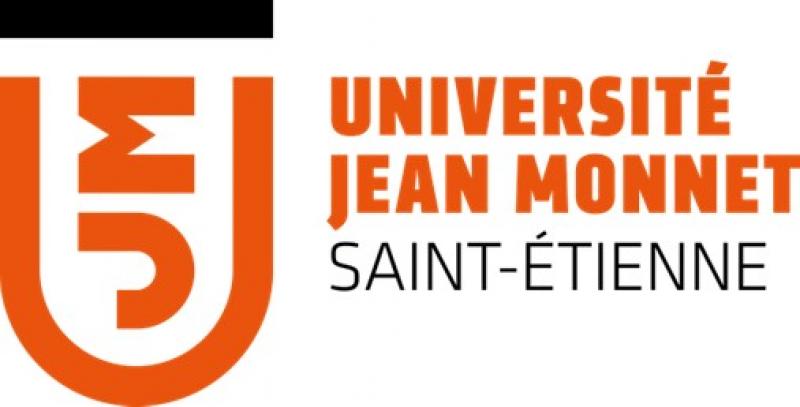Mobility France to Spain
Here you will find some key answers to the most frequently asked questions students have before starting their study period in Spain. Please notice that this information is just indicative and might be subject to changes at any moment.
MLDM students from cohort 2014-2016 are expected to arrive in Alicante the last week of August 2015
#1 Before departure: get a long-term Spanish visa
European citizens
Students who are citizens of the European Union, Iceland, Liechtenstein, Norway or Switzerland are not required to get a visa for Spain since they already have the right to residency, nor their are required to apply for a residence permit. However, the Consulate in Lyon informed us citizens from Croatia may be subject to some restrictions up to 01/07/2015.
Non-European citizens
Non-EU citizens coming to study / work (for a work placement) are required to obtain a long term visa. Note that this also includes non-EU spouses and dependents. Despite the enlargement of the EU, the Schengen zone and general harmonization of regulations regarding movement within the EU, it is important to understand that most visa issues are under competence of national states, and therefore there are no single regulations and requirements for all European countries. Visas are managed by the Spanish Ministerio de Asuntos Exteriores y Cooperación (Ministry of Foreign Affairs and Cooperation) through its consulates and embassies around the world.
You must apply for and obtain your visa through the Spanish consulate nearest to your residence before you travel. Personal appearance at the Spanish Consulate is required in order to submit the documentation. Since visas are never issued in Spain, you must apply for it before you leave your country of residency. Do not attempt to enter Spain without a visa if you need one. There is no emergency procedure, your embassy in Spain can’t help and you will probably be refused to entry.
In your case, you need to plan a trip to the Spanish consulate in Villeurbanne (Lyon):
1, Rue Louis Guérin
69100 Villeurbanne
04 78 89 64 15
Here is a map with direction from the train station “Lyon Part Dieu”:
No appointment is necessary, but opening hours are Monday to Friday, from 8:30 AM to 1:00 PM. We advise you to make a call before leaving to make sure the consulate is opened before leaving Saint Etienne.
Generally, you should apply for the visa at least two months before the expected date of departure. You must first have a valid passport with at least three months until expiry in order to apply, so be sure to allow adequate time to obtain or renew both the passport and get the visa application processed. Don’t leave this to the last minute or you put your travel plans at risk. Best is to start this process as soon as you have the OFII sticker delivered on your French visa.
For the application you must contact the consulate that has jurisdiction over your country of permanent residence to find out which procedure applies, i.e. the General Consulate in Lyon. Only them could give you accurate and up-to-date information on the exact type of visa you need to apply for, the process and documentation required. You can contact them at cog.lyon@maec.es to be ready before visiting them.
For information only, documents usually required for the student visa are (this should be confirmed by the Consulate previous to your request):
- Certificate of admission from the MLDM consortium;
- Passport (validity covering at least your stay in Spain) =original + 1 hard copy, your passport will not be kept by the Spanish Consulate);
- French student visa with French residence permit (OFFI sticker on your French visa) = original + 1 hard copy
- University Jean Monnet student card: original + 1 hard copy
- Public or private health insurance (the insurance company must be authorized to operate in Spain
- A medical certificate (of less than three months) stating that you are fit and healthy and that you do have any contagious diseases + 1 photocopy (in case the OFII medical certificate is not accepted, we can ask the doctor base at University Jean Monnet to produce a new one).
- Your SMERRA “ Attestation d’affiliation à la sécurité sociale” + your CEAM card (Carte Européenne d’Assurance Maladie) or the replacement certificate of the card + 1 photocopy.
- Two Forms EX00 filled and signed. You can download those forms here in French or English.
- Bank account statements (yours or your parent’s), payroll sheets, or any other documents to prove you have at least 531,52 €/month available during your stay in Spain.
- An extract of criminal record (“bulletin 3 de casier judiciaire”) if your stay in Spain is longer than 6 months. You can request (for free) such a record online (click on “Commencer la procédure”), here for students born in Franceand there for students (including French nationals) not born in France. The record will be delivered to you by mail.
In addition, you should bring:
- 60 EUR in cash (non-refundable fees);
- 1 passports photo
You’ll find here some general information on Spanish long-term visa.
NB: Rules for visa change often. While we’ll do our best to provide any guidance and supporting documentation you will need, undertaking in a timely fashion immigration procedures are ultimately your sole responsibility. Keep the administrative coordinator update of any issues face and help us to maintain this website information accurate and up to date by sending your feedback.
#2 Upon arrival: housing
- The Student Information Office of the University of Alicante keeps a list of University Residences and Residencial Complexes.
- The University also holds an accommodation database (unfortunately only in Spanish and Valencian).
- There is always the well known airbnb.
- www.erasmate.com focuses on (international) student-to-student housing for short term periods and can be used for free by students.
- The Centro Superior de Idiomas also offers some guidance to foreign students.
- It might not be a good idea to rent an apartment without seeing it in advance. It is better to see it, know what appliances it has, check if the area is the most convenient for you, how close is from the Sant Vicent del Raspeig campus of the Universitat d'Alacant and from the down-town, know who is the landlord, which other room-mates are in the apartment, if there are constructions nearby, if it is an apartment with a lot of natural light or just the contrary, if they are old flats without central heating, if it has a nice balcony or a terrace, if it has wireless, etc. All these aspects have to be checked before reaching an agreement.
- The advice and experience of previous MLDM students may be useful: you can contact Mikel L. Forcada, Alicante coordinator.
#3 Upon arrival: residence permit & registration certificate
EU-students
EU-students (including Norway, Iceland, Liechtenstein and the Swiss Confederation) are required to register with the Central Register of Foreign Citizens (Registro Central de Extranjeros) of the province where they will be residing. This Office will issue a registration certificate giving you the right to live in Spain for the duration of your study period. See how to register here (unfortunately only in Spanish).
Non-EU students
The non-EU students need the residence permit to inhabit in the Spanish territory. To enter the Spanish territory the foreigner would be required to show his valid passport and the corresponding visa.
After a period of time exceeding 90 days, in order to remain in Spain it is necessary to obtain either a visa extension or a residence permit. The temporary residence permit allows you to remain in Spain for a period of time between 90 days and 5 years).
Upon arrival in university of Alicante, the Local Academic Coordinator Mikel L. Forcada will provide you guidance on what to do to obtain your residence permit.
For the temporary residence permit for non EU students you need to provide the following documents:
- Valid passport.
- Residence visa in force.
- Certificate of criminal record* (that is, the police clearance certificate) issued by the authorities of the foreigner's home country.
- Some passport-size photographs.
- Medical certificate*
- Proof of financial income to support you during the period of residence in Spain, such as pensions, work salaries... (Grant letter)
- Proof of health assistance (ACE Europe letter)
* NOTE: The criminal record certificate and the medical certificate must be originals. Both documents were submitted during your application to get your Spanish Visa and you should have them back when you received your Visa (So those documents must be originals).
In Alicante the student residence permit application is processed at the main Foreign Office of the Hime Ministry at Calle Ebanistería, 4-6.
Important note : Always carry a copy of your passport and visa in force when abroad in case of police control.










